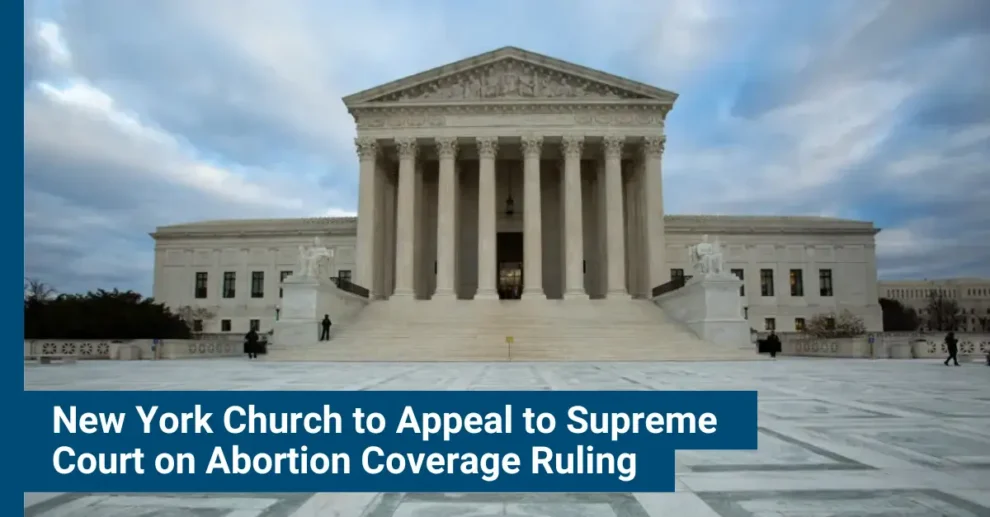The U.S. Supreme Court is hearing an appeal from a Roman Catholic diocese on a New York appeals court decision that mandates religious charities to offer abortion coverage as part of their employee health insurance plans. Roman Catholic Diocese of Albany, New York is preparing a petition for certiorari, or review, to be filed with the U.S. Supreme Court in the upcoming weeks, according to Lori Windham, vice president and senior counsel at the Becket Fund for Religious Liberty, who confirmed this during an online press conference on July 25.
The legal team of the diocese includes the Becket organization. The case is Albany Diocese of the Roman Catholic Church v. Harris. The New York Department of Financial Services, which created the health insurance rule that is currently in effect, is led by Adrienne A. Harris as superintendent.
The New York Court of Appeals dismissed a challenge by several religious organizations, arguing that an exemption designated for religious employers was too limited, and decided on Tuesday that an administrative rule mandating employer-provided insurance plans to cover medically necessary abortions is not unconstitutional.
The state’s Department of Financial Services enforced the regulation in question, which forbids health insurance policies from refusing to pay for abortions that are medically necessary if they also cover other hospital, surgical, or medical costs.
To qualify for an exemption, “religious employers” must meet four requirements: they must be nonprofit organizations, have an inculcation of religious principles as their primary goal, and employ and service mostly members of their own religious community.
Numerous charitable and church organizations, as well as the Roman Catholic dioceses of Albany and Ogdensburg, as well as a general contractor, contended that this was excessively restrictive and that, especially in light of Fulton, the mere fact that such an exemption existed meant that it was not “generally applicable” and thus an unconstitutional burden on the right to the free exercise of religion.












Add Comment